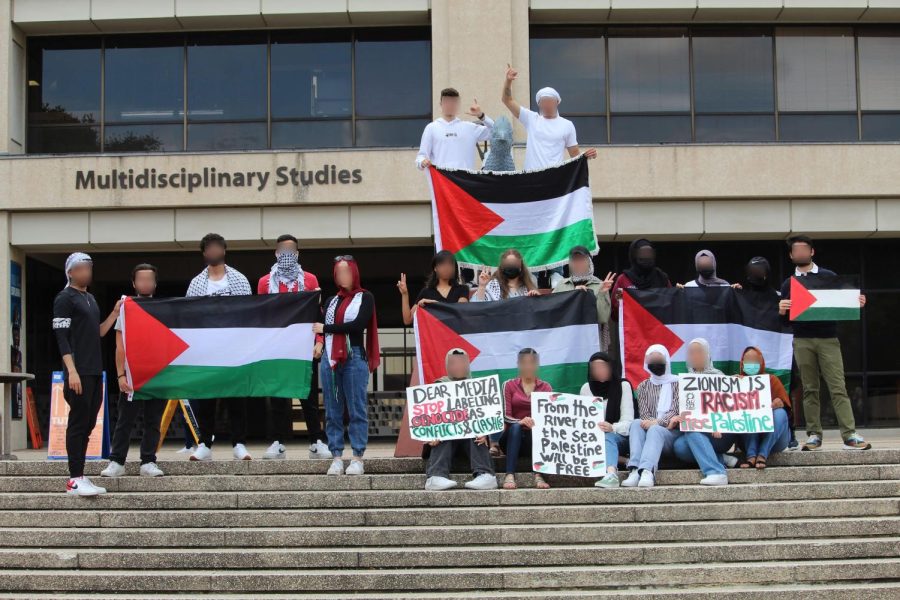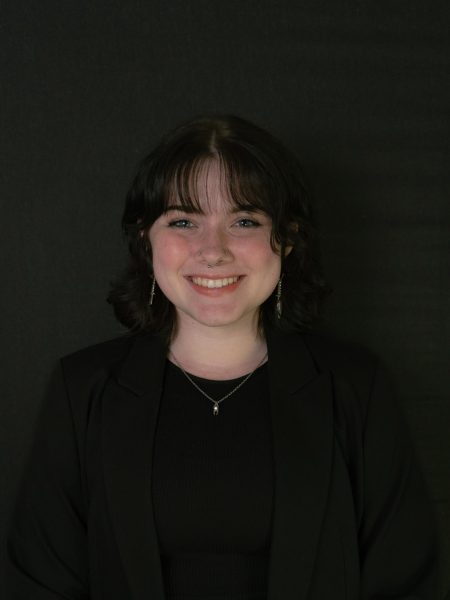Students for Justice of Palestine: What do they stand for?
July 28, 2022
UTSA’s Students for Justice of Palestine (SJP) organization advocates for the liberation of Palestinians from the Israeli occupation through educating students and conducting peaceful protests.
Mouna Al-Hakeem, a junior marketing major and social media chair for SJP, joined because of her passion for the cause and to spread awareness to the student body. She explained that SJP is a national chain of organizations with chapters at campuses across the country.
“SJP used to be an official organization at UTSA but wasn’t reinstated once the pandemic happened,” Al-Hakeem said. “We are currently in the process of reinstating it as an official organization through UTSA.”
To become reinstated, SJP needs a sponsor and a constitution for its organization.
“We were able to secure a faculty sponsor and we met up as a board to write the constitution,” Al-Hakeem said. “We are going to submit everything this week to hopefully get approved by UTSA.”
As the Spring 2022 semester came to a close, SJP held a public demonstration on the staircase of the Sombrilla in front of the roadrunner statue. A diverse group of students was present, chanting for the liberation of Palestine from Israeli occupation.
“The goal [of the protest] was to peacefully spread awareness on the issues currently faced by Palestinians overseas right now, and share as much knowledge as possible as well as show [the] UTSA campus that our organization exists and we plan to work together to continue to spread awareness and potentially make a difference one step at a time,” Al-Hakeem said. “The goal was absolutely achieved as we received the support of many UTSA students as they [sought] more information or even joined our peaceful demonstration.”
For students who may not be knowledgeable about the happenings between Israelis and Palestinians, Al-Hakeem and her fellow SJP members set up an informational table while the protest was simultaneously occurring.
“Palestine is a country in the Middle East and has been inhabited by Muslim, Christian, and Jewish Palestinians,” Al-Hakeem explained. “Until 1948, Zionists forced more than half of the indigenous population of Palestine out of their homes, in order to establish Israel. Since then, Israel has continued to take more and more Palestinian land, and now Palestinians own a small portion of Palestine called the West Bank and Gaza Strip. Many say it’s a conflict but in reality, Palestine is occupied by Israel and Palestinians suffer from the occupation on a daily basis. It’s not a conflict when one side [lives] peacefully on stolen land and the other is constantly being killed, imprisoned and kicked out of their homes for no reason.”
According to Al-Hakeem, many people believe the root of the Israeli occupation is religious persecution.
“Many think that the conflict is all about religion when in reality it is a fight between two nationalists,” Al-Hakeem said. “The events happening are not part of a conflict, Israelis are colonizing and occupying Palestine, it is ethnic cleansing. Moreover, Israel always says that it’s a conflict however Israel tends to spread misinformation about the events. They are also backed by other large settler colonies such as the USA.”
Additionally, Palestinian protesters who have voiced their opinions about the conflict may not be able to reenter their country due to the Israeli occupation.
“The importance of covering the protesters’ faces is to protect them when trying to enter Palestine,” Al-Hakeem explained. “Unlike Israelis, Palestinians don’t have the luxury of freedom of speech since it is used against them at the border. Upon entering [Palestine], many are asked by the occupation if they participated in any activities against Israel, and sometimes if they target a person, they find proof of their participation which [can be] pictures from protests and events found on social media. This is why it’s important to protect our protesters. They are trying to speak up and make a change, [but] at the same time many would like to go to Palestine and visit their friends and family.”
SJP plans on continuing to host events in the upcoming semesters. More information and updates about SJP can be found on the organization’s Instagram account.
“Our official Instagram is @sjputsa and if [students] have any questions or comments about joining our organization or anything else DM us,” Al-Hakeem concluded.







